#Bolshevization
Text

Nearly as soon as the Bolsheviks took power, they began to execute anarchists and Socialist Revolutionaries, most of whom had fought alongside the Bolsheviks in the Revolution. They also purged elements of their own party deemed "anti-Soviet" or "counter-revolutionary." This state repression was well documented by the Soviet government, but here we have chosen to use journals and letters of those affected. Lithuanian-American Jewish anarchists Emma Goldman and Alexander Berkman describe the Bolshevik betrayal: The systematic man-hunt of anarchists [...] with the result that every prison and jail in Soviet Russia filled with our comrades, fully coincided in time and spirit with Lenin's speech at the Tenth Congress of the Russian Communist Party. On that occasion Lenin announced that the most merciless war must be declared against what he termed "the petty bourgeois anarchist elements" which, according to him, are developing even within the Communist Party [...] On the very day that Lenin made the above statement, numbers of anarchists were arrested all over the country, without the least cause or explanation. The conditions of their imprisonment are exceptionally vile and brutal. (Boni, 253)
#anti-bolshevism#anti-leninist#anarchism#anti tankie action#crimethinc#emma goldman#alexander berkman#communism#marxism leninism
71 notes
·
View notes
Text

its been a while hasnt it
#mod spice#art#centricide#jreg#centricide fanart#jreg fanart#jreg pinkcap#centricide pinkcap#jreg nazbol#centricide nazbol#jreg pink capitalism#centricide pink capitalism#jreg national bolshevism#centricide national bolshevism#jreg pink capitalist#centricide pink capitalist#i forgot how much of a doozy these tags can be
111 notes
·
View notes
Text
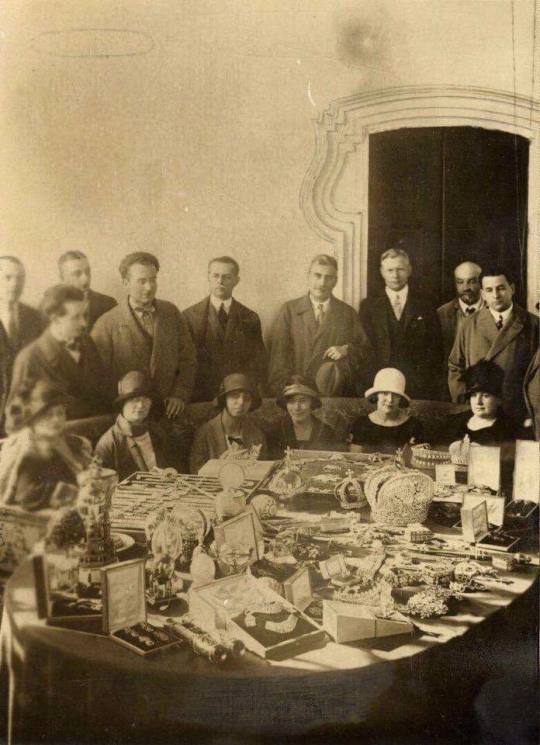
In this photograph, the Bolsheviks displayed the jewelry of the Romanov family members they killed, including Faberge eggs, before foreign guests before an auction in 1925. Rich families from Europe and the United States gladly bought jewelry and unique pieces of art looted by the Bolsheviks.
71 notes
·
View notes
Text
You must understand, the leading Bolsheviks who took over Russia were not Russians. They hated Russians. They hated Christians. Driven by ethnic hatred they tortured and slaughtered millions of Russians without a shred of human remorse. It cannot be overstated. Bolshevism committed the greatest human slaughter of all time. The fact that most of the world is ignorant and uncaring about this enormous crime is proof that the global media is in the hands of the perpetrators.
-Aleksandr Solzhenitsyn
39 notes
·
View notes
Note
i really enjoy your content but you said "baking, cake decorating and other “jobs” are presumably not going to fade away themselves, but the person performing them won’t feel obligated to stay connected to them, and thus won’t feel an innate connection to said “jobs”, as capitalism won’t be there to enforce labor & create spiritual links between the laborer and executed labor." and to me, i feel like those so-called spiritual links will still exist bc people spend their whole lives trying to find their calling, and i for example with my job do find some meaning in it and have formed a strong attachment. it does link itself to my identity, and i'm glad it does, as do lots of my friends. yeah we could've gone different routes, but i don't think someone identifying with their job is an inherently bad thing. if i was offered jobs in other fields i would still stick with this job and all its faults bc i feel like i belong and my unique skills match so well with it. so many ppl are struggling at jobs they hate ofc, and i hope we can make those jobs more enjoyable and give them a way out if they want it thru capitalism reform/abolition. but i feel like it's a bit of a stretch to say that when a person isn't forcibly glued to a job they, like you said, "won't feel obligated to stay connected to them, and thus won't feel an innate connection to said "jobs" as capitalism won't be there to [...] create spiritual links between the laborer and executed labor." maybe i'm just misunderstanding what you mean by spiritual link?
when a person engages with the capitalist system by baking, they tend to produce & center their identity around this baking– hence being a baker. after capitalism is dismantled & the base is changed– the superstructural identity around being a baker will fade– and, like i said, this does not mean that the “job” itself will; it just means that there will no longer be a system to orchestrate it, enforce labor; meaning that a person may really enjoy baking, but there will be no oppressive relations connected to labor there to make the reality of identifying with being a baker exploitative. thus, a person may engage with baking, without being a baker. a person may “identify” with their career, without feeling obligated to stay within that career for their entire life.
i understand that people spend their whole lives searching for this so-called calling. but i hope you also understand that the concept of this calling is, in fact, connected to the superstructure of capitalism & concentration, and thus, enforcement of labor. the identity of a baker, after capitalism & oppressive relations of labor are dismantled, may shift & fade as it wills, and remain unfixed. it won’t be enforced, fixed, or spiritual, in other words. of course, people will be still able to love their careers– in fact, they will probably enjoy them more– as they will own the means of production; however, when i speak of spiritual capitalism, i speak of the obligatory links the exploitative system produces in order to beautify the reality of its’ oppressive nature; to delude & gaslight the workers into thinking the labor they perform is everything to their personality, forming their personal identities around the type of labor they perform/the career they choose. capitalism uses the kind of spirituality that serves strictly to beautify the conditions of workers, connect them to the type of labor they perform & make them identify with it on an interpersonal level– as well as to beautify the harsh, overbearing, and exploitative relations it produces. capitalism would crumble & decline way, way faster if it didn’t produce such spirituality– the beautification certainly, without doubt, serves to dissociate the workers from raising class consciousness, and it does a brilliant job at this– it makes the workers feel with their careers on a very intimate scale, almost basing their entire self-worth on it (which increases fear of failure), and it beautifies the institutions that oppress the workers. if the workers collectively realized how this system only exploits both them & the environment, how it crumbles & declines every seven years; creating environnemental chaos– if they realized that only a small number of manufactured material is actually able to be obtained, and how this creates mass-production & pollution– the system would ultimately crumble, as the workers would be at its feet, working collectively to destroy it. if the beautification of capitalism didn’t exist, capitalism wouldn’t ensure its’ survival– the workers would gain class consciousness, and realize that the system only gives them enough resources to keep the proletariat alive as a class.
in other words, the system abuses the workers, and when the handlebars of it provide the bare minimum as a way to ensure the survival of the working-class; the workers believe it is honey & milk. they think the ruling class is giving them heavenly treatment, and this is gaslighting. spirituality is the theory, and gaslighting is the praxis. the ruling class & their system of capitalism are abusers, and the beatification, a.k.a spiritualization of their system– is there to keep their victims in a constant state of overworking, hoping for a “reward”– and this makes them form identities around their exploitation, feel afraid of disappointing & abandoning this identity, and makes them feel like the institution they’re working at & the bosses they are serving are their home. spirituality is the “aftercare” of exploitative abuse connected to labor, and spiritual links are necessary to prevent the proletarians from revolting, and keeping them all as subservient, obedient workers.
#communism#anti capitalism#spirituality#spiritual capitalism#marxism leninism#proletarian feminism#bolshevism#radblr#ask#marxism
9 notes
·
View notes
Text

in a brotherly union of workers and peasants = to a pledge to safeguard and spread the victories of the revolution
11 notes
·
View notes
Text

instead of finding their orientation in the actual social conditions and their possibilities, the new leftists base their concerns mainly on a set of ideologies that have no relevance to the requirements of social change in capitalist nations.
they find their inspiration not in the developmental processes of their own society but in the heroes of popular revolution in faraway countries, thereby revealing that their enthusiasm is not as yet a real concern for decisive social change.
Paul Mattick, Introduction to Anti-Bolshevik Communism
101 notes
·
View notes
Text
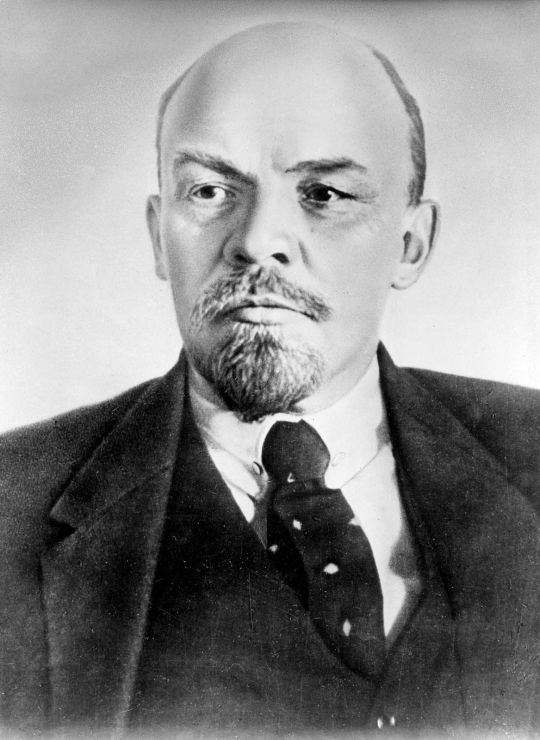

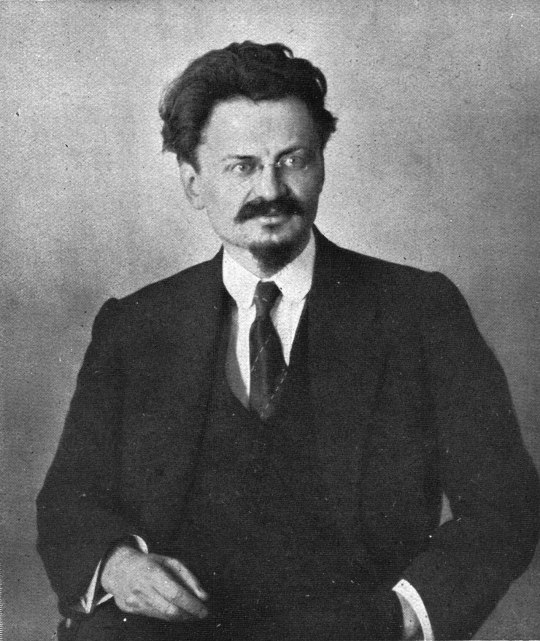
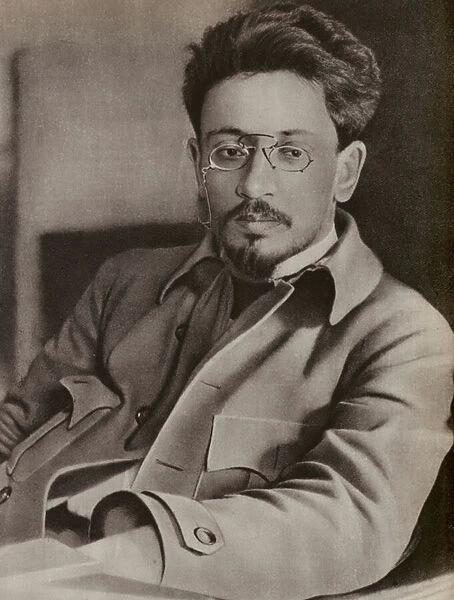
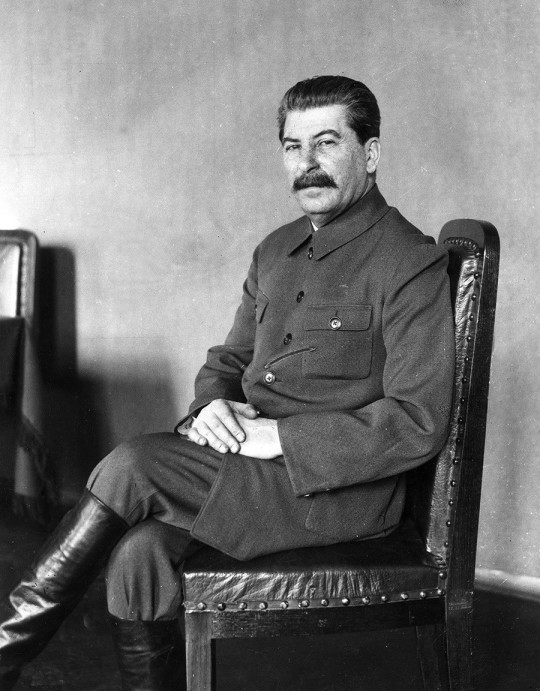
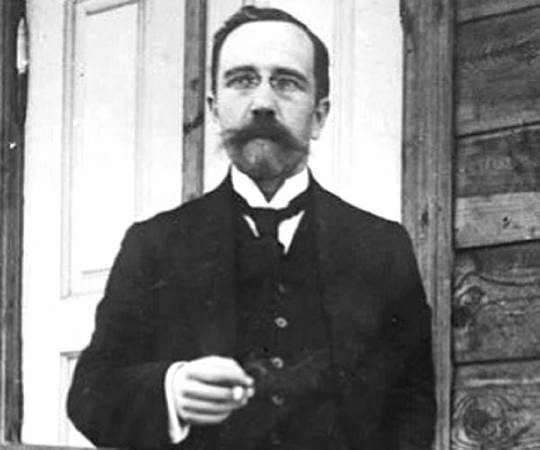
What is the Marxist Explanation for the fact that all the old Bolsheviks look like knockoff versions of each other?
#marxism#bolshevism#vladimir lenin#nikolai bukharin#leon trotsky#yakov sverdlov#josef stalin#lev kamenev#leftcom
23 notes
·
View notes
Text

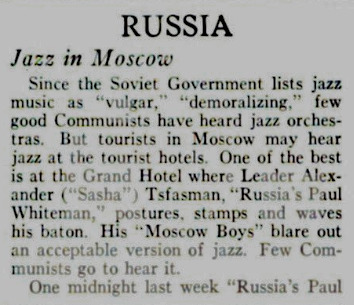
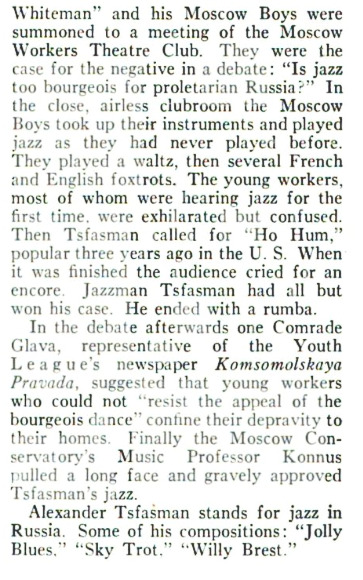

TIME, May 22, 1933
#1930s#1933#freedom of expression#book burning#philistinism#nazis#germany#bolshevism#soviet union#rockefeller#diego rivera#Jazz#juxtaposition
9 notes
·
View notes
Text
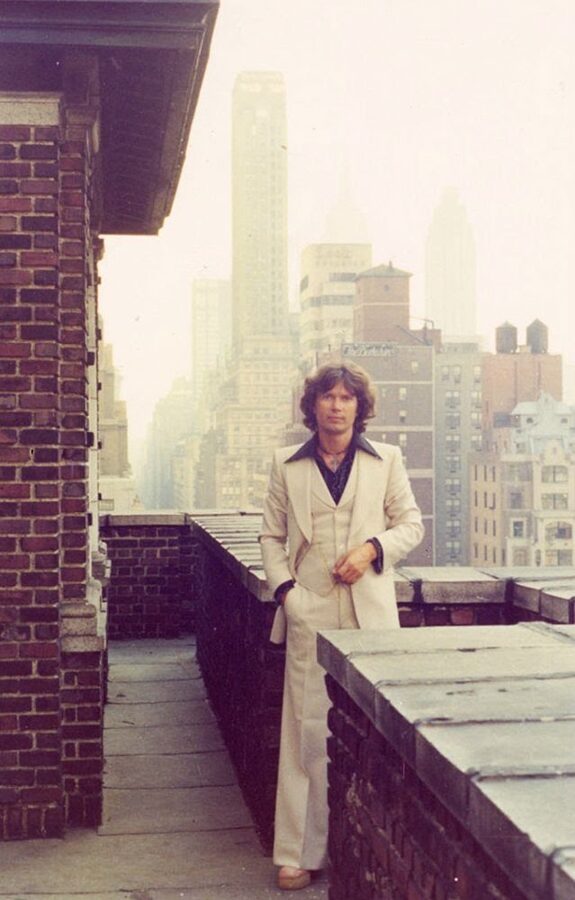
“Alyoshka was not yet a Catholic then, but he no longer wore a beard. He had just been laid off as a guard, he had surrendered his nightstick and uniform and become once more the mustachioed and dark-eyed Alyoshka Slavkov, cheerful despite a bad limp, lover of booze. Alyoshka fed me sauerkraut and sausages, his unvarying diet, and sat down to translate a document I had brought. Entitled "Memorandum," the document expressed the hopes and dreams of what we called "the creative intelligentsia"—of Alyoshka and myself and a great number of other artists, writers, filmmakers, and sculptors who had emigrated from the USSR and whom no one here needed one fucking bit.
Alyoshka translated, and I sat in an old chair, its upholstery worn shiny, and thought about our document and our intrigues. "A drowning man's effort not to drown," I thought. Two pages. To be sent to Jackson, Carey, and Beame. As if they would help us with our art. Those demagogues had needed us, however, while we were over there. Here they shoved us on welfare so we wouldn't bitch. Okay, Ivan, have a spree, enjoy your freedom.
Cold-blooded Americans, they're so fucking smart, they advise the likes of us to switch professions. Just one thing—why don't they switch professions themselves? When a businessman loses half his fortune he throws himself off the forty-fifth floor of his office building, he does not go to work as a guard. I could have conformed in the USSR, why the fuck come here to do it? That was all the Soviet regime wanted of me, to change my profession.
A fine emigration we are, I went on in my thoughts, the most frivolous one yet. Usually only the fear of starvation or death can force people to leave a place, abandon their homeland, knowing that they may not be able to return, ever. A Yugoslavian who leaves for a temporary job in America can return home to his country, we can not. Never again shall I see my father and mother; I, little Eddie, am firm and calm in this knowledge.
It all started with Messrs. Sakharov, Solzhenitsyn, and company, who turned us against the Soviet world without ever having laid eyes on the Western world. They were prompted not only by specific purposes—the intelligentsia were demanding a part in governing the country, demanding their share—but also by pride, the desire to advertise themselves. As always in Russia, moderation was not observed. They may have been honestly deceived, Sakharov and Solzhenitsyn, but they deceived us too. Whatever the case, they were "dominant influences." So powerful was the intelligentsia's movement against their country and its system that even the strong could not resist and were swept along. So we all shag-assed over to the Western world as soon as the opportunity presented itself. We shag-assed over here, and having seen what the life is like, many if not all would shag-ass right back, but it's impossible. The Soviet government is not nice.
Fucking smart Americans, they advise men like Alyoshka and me to change professions. Where am I to hide all my thoughts, feelings, ten years of living, books of poetry? And me myself, where am I to hide refined little Eddie? Lock him up in the shell of a busboy. Bullshit. I tried it. I can no longer be an ordinary man. I am spoiled forever. Only the grave will reform me.
Eventually American security forces are going to have trouble with us. After all, not everyone conforms. In a couple of years look for Russians among the terrorists in liberation fronts of every description. That is my forecast.
Change our professions! Can the soul be changed? Knowing definitely what he is capable of, is it everyone who can suppress himself here and live the life of an ordinary man, laying no claim to anything, when he sees around him money, success, and fame, all of it largely undeserved, when he knows from experience both here and in the Soviet Union—and in this case the experience is identical—that he who is obedient and patient receives all from society, that he who sits on his butt all day and curries favor gets it all.
The brilliant inventors of vegetarian sandwiches for Wall Street secretaries can be counted on the fingers of one hand. For the most part, people arrive at success here just as they do in the USSR, by obedience, by wearing out the seat of their pants in their own or a government office, in boring daily labor. That is to say, civilization is constructed in such a way that the most restless, passionate, impatient—as a rule the most talented, who seek new paths—break their necks. This civilization is paradise for the mediocre. We thought the USSR was a paradise for the mediocre, we thought it would be different here if you were talented. Fuck no!
Ideology there, business reasons here. That is roughly true. But what difference does it make to me exactly why the world doesn't want to give me what is mine by right of my birth and talent? The world calmly gives it—a place, I mean, a place in life, recognition—to the businessman here, to the party worker over there. But it has no place for me.
Fucking shit! I'm being patient, world, very patient, but some day I'll get fed up. If there's no place for me, and for many others, then who the fuck needs a civilization like this?
That last thought I expressed aloud to Alyoshka Slavkov, who is far from agreeing with me in everything. He is drawn to religion, inclined to seek salvation in religious tradition; on the whole he is calmer than Eddie, although he too has storms raging within him, I think. He dreams of becoming a Jesuit, and I mock his Jesuitism and predict that he will participate in the world revolution along with me, a revolution whose goal will be to destroy civilization.
"And what would you build in its place, you and your friends in the Workers Party?" Alyoshka said. For some reason he lumps me in with the Workers Party, to which I have never belonged. I have merely been interested in it, as in any other leftist movement. I did become more intimate with Carol and her friends than with members of the other parties, but that was pure chance.
"The hardest thing of all," I told Alyoshka, "is to overthrow this civilization, tear it out by the root so that it cannot revive as it did in the USSR. To overthrow it once and for all is to build something new."
"And what will you do about culture?" Alyoshka asked
"This feudal culture," I said, "which inculcates wrong interpersonal relationships that originated in the distant past under a different social order-what will we do about it? We'll fucking annihilate it. It's unhealthy, it's dangerous with all its little tales of good millionaires, wonderful police who defend citizens from bestial criminals, magnanimous politicians who love flowers and children. Why is it that not one of these stinking authors—notice, Alyoshka, not one—will write that crimes, the majority of them, are generated by civilization itself? If a man kills another and takes his money, it's certainly not because he likes the color and crunch of those scraps of paper enough to murder another. He knows from his society that among his fellow countrymen those scraps of paper are God, they'll bring him any woman he wants, and bring him his grub, and deliver him from exhausting physical labor. Or a man kills his wife for betraying him. But if there were other customs, a different ethic, and interpersonal relationships were measured only by love, then why would he kill for unlove? Unlove is a misfortune, it's to be regretted. Television always shows families, and gentlemen in suits. But that's already on the way out. The gentlemen in suits are on the way out, and the wild wind of new relationships, ignoring all police measures, all religious barriers, howls over America and the whole world. The gentleman in a suit, the gray-haired head of the family, is suffering defeat after defeat, and soon, very soon, he will no longer be able to govern the world. The husband and wife who joined together in order to have a more peaceful, economically more advantageous life—not for love, but at the decree of custom—theirs was always an artificial arrangement and engendered a host of tragedies. Why the fuck preserve an obsolete custom?"“ - Eduard Limonov, ‘It's Me, Eddie’ (1979) [p. 148 - 151]
#limonov#eduard#eddie baby#eddie#russia#russian literature#russian punk#new york#soviet art#post soviet#soviet#ussr#national bolshevism#civilization#civilisation#culture#aleksandr solzhenitsyn#art#artist#freedom
11 notes
·
View notes
Text

Sojiro Sakura from the Persona series is a Bolshevik!
25 notes
·
View notes
Text

12 notes
·
View notes
Text

happy pride month everyone!
#mod spice#mod sugar#sugar-spice everything nice!#art#centricide fanart#centricide#jreg#jreg fanart#jreg pinkcap#centricide pinkcap#centricide pink capitalism#centricide pink capitalist#jreg pink capitalism#jreg pink capitalist#jreg nazbol#jreg national bolshevism#centricide nazbol#centricide national bolshevism#jreg national bolshevist#centricide national bolshevist
89 notes
·
View notes
Text

"He who does not work, neither shall he eat."
Uzbek SSR
1920
#socialism#communism#poster#propaganda#anti-capitalism#marxism#uzbekistan#soviet#soviet union#ussr#bolshe#bolshevism
23 notes
·
View notes
Text
"In the Leninist perspective, if revolutions are the locomotives of history (to use Marx's words) then the masses are the steam, the party the locomotive and the leaders the train driver. The idea of a future society being constructed democratically from below by the workers themselves rather than through periodically elected leaders seems to have passed Bolshevism past. This is unsurprising, given that the Bolsheviks saw the workers in terms of blindly moving steam in a box, something incapable of being creative unless an outside force gave them direction (instructions).
. . . Thus we have a privileged position for the party and a perspective which can (and did) justify party dictatorship over the proletariat. Given the perspective that the working class cannot formulate its own "ideology" by its own efforts, of its incapacity to move beyond "trade union consciousness" independently of the party, the clear implication is that the party could in no way be bound by the predominant views of the working class. As the party embodies "socialist consciousness" (and this arises outside the working class and its struggles) then opposition of the working class to the party signifies a failure of the class to resist alien influences. As Lenin put it:
"Since there can be no talk of an independent ideology being developed by the masses of the workers in the process of their movement, the only choice is: either bourgeois or socialist ideology. There is no middle course . . . Hence, to belittle socialist ideology in any way, to deviate from it in the slightest degree means strengthening bourgeois ideology. There is a lot of talk about spontaneity, but the spontaneous development of the labour movement leads to its becoming subordinated to bourgeois ideology . . . Hence our task, the task of Social-Democracy, is to combat spontaneity, to divert the labour movement from its spontaneous, trade unionist striving to go under the wing of the bourgeoisie, and to bring it under the wing of revolutionary Social-Democracy." [Op. Cit., pp. 82-3]
The implications of this argument became clear once the Bolsheviks seized power. As a justification for party dictatorship, you would be hard pressed to find any better. If the working class revolts against the ruling party, then we have a "spontaneous" development which, inevitably, is an expression of bourgeois ideology. As the party represents socialist consciousness, any deviation in working class support for it simply meant that the working class was being "subordinated" to the bourgeoisie. This meant, obviously, that to "belittle" the "role" of the party by questioning its rule meant to "strengthen bourgeois ideology" and when workers spontaneously went on strike or protested against the party's rule, the party had to "combat" these strivings in order to maintain working class rule! As the "masses of the workers" cannot develop an "independent ideology," the workers are rejecting socialist ideology in favour of bourgeois ideology. The party, in order to defend the "the revolution" (even the "rule of the workers"!) has to impose its will onto the class, to "combat spontaneity."
. . . (N)one of the leading Bolsheviks were shy about drawing these conclusions once in power and faced with working class revolt against their rule. Indeed, they raised the idea that the "dictatorship of the proletariat" was also, in fact, the "dictatorship of the party" and (...) integrated this into their theory of the state. Thus, Leninist ideology implies that "workers' power" exists independently of the workers. This means that the sight of the "dictatorship of the proletariat" (i.e. the Bolshevik government) repressing the proletariat is to be expected."
Anarchist FAQ Section H.5 | What is vanguardism and why do anarchists reject it?
This elitist perspective of the party, the idea that it and it alone possesses knowledge can be seen from the resolution of the Communist International on the role of the party. It stated that "the working class without an independent political party is a body without a head." [Proceedings and Documents of the Second Congress 1920, vol. 1, p. 194] This use of biological analogies says more about Bolshevism that its authors intended. After all, it suggests a division of labour which is unchangeable. Can the hands evolve to do their own thinking? Of course not. Yet again, we have an image of the class as unthinking brute force.
#lenin#leninism#vanguardism#anarchism#marxism leninism#socialism#bolshevism#bolsheviks#ussr#uploads#revolutionary vanguard#social democracy#dictatorship of the proletariat#dotp#marxism#communism
3 notes
·
View notes
Text
why am i in opposition with anarchism?
abolition of the state is not a process that occurs overnight, it is not a push of a button that will abolish the state and create communism at the same moment. on the contrary, building socialism is a difficult, long-lasting and painstaking process accompanied by numerous successes and failures. every attempt to build socialism started in backward, mostly feudal countries of the second and third world. russia was a semi-feudal poorest country in europe, china was a colony destroyed by civil war and imperialism, vietnam too; cuba, algeria and libya were severely economically exploited by the imperialist masters. those socialist countries were exposed to international isolation, embargoes, attempts at sabotage and destabilization, and in the worst case they were attacked (operation barbarossa on the ussr, invasions of korea and vietnam, the bay of pigs in cuba...). the construction of the army, police and secret services was necessary to preserve the revolution and socialism. even the anarchists in ukraine & spain had their army, police and secret services, just as today the anarchists in rojava have their army, police, anti-terrorist units and secret service.
for this reason, the communists used capitalism to a lesser extent as a transition from a feudal to a socialist society; nep in russia under lenin, new democracy under mao & reforms under xiaoping in china. everyone knows that socialism comes from a post-capitalist society, and how to create socialism without capitalism? do anarchists really think that communists in russia, china or any other country did not spend thousands of meetings, debates and arguments to choose the right path for the development of socialism? those communists chose what they thought was best at the given moment.
let’s take the example of china, where the communists came to power in 1949. china was then a feudal country, only 15% of the population was literate, slavery was still practiced, people lit fires by beating stone against stone, what little industry and infrastructure there was was destroyed in ww2 and later in the civil war. building socialism was impossible, there was simply no factory. what did the communists in china do about it? they used capitalism to strengthen the economy, raise living standards & improve the living conditions of workers.
in less than 30 years, the PRC lifted 800 million people out of extreme poverty (especially the rural population). did the zapatistas achieve communism? their revolution has been going on for more than 30 years, so they didn’t become a classless society overnight. in their society, they have classes, private property, markets & trade with the outside capitalist world. the same thing is with rojava, which has all of the above. one of the few “successful” anarchist movements have come up with problems that communists have faced for a long time. i will repeat again: for everything that anarchists accuse the ussr, china & other socialist countries, the same can be applied to “successful” anarchist revolutions.
we communists must be practical, we must learn from our mistakes and correct them. we must not blindly follow dogmatism.
7 notes
·
View notes